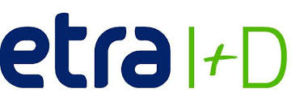As part of our series of interviews with BALIHT’s partners, Elena Leal from ETRA I+D tells us more about their role in the project.
What is the role of ETRA in BALIHT project?
Although ETRA is participating in different tasks in the project, the company’s main activity is the development of the Energy Management system (EMS), optimising the battery operation within the grid in which it will be installed. The EMS acts as an interphase between the system embedding in BALIHT’s redox flow battery (RFB) and the RFB’s Battery Management System (BMS). The EMS functionality will also be highly configurable and compatible with standardized telecontrol protocols, greatly simplifying the battery deployment and integration.
ETRA Investigación y Desarrollo team involved in the project (from left to right: Antonio Marqués, Manuel Serrano, Alberto Zambrano, Elena Leal):




What has ETRA achieved during the first half of the project?
Regarding the development of the EMS until now, the main core of the algorithms that will optimize the battery operation is developed and simulations are being run to test all the factors that can affect the system. The EMS is able to manage the demand and the release of energy, calculating the most optimal operation, controlling elements including the battery and the EV chargers.
In terms of communication, the EMS implements standardized communication protocols and serves as a communication endpoint that provides data and receive commands from external systems at the level of the battery. The tests between the EMS and the BMS were successfully completed in collaboration with Končar.
What will be your main challenges until the end of the project?
The main challenge of ETRA will be to fully develop an Energy Management System for the optimization not only of the battery but also of the whole installation, taking in account renewable energy sources (RES), EV chargers and charging loads. One of the main challenges is to achieve a peak saving optimization of the installation considering real time data to maximize the RES energy use. It will also be a challenge to develop the EMS as configurable as possible not only to work with the defined organic redox flow battery of BALIHT project but also with other types of batteries and installations. The objective is to use this knowledge to have a product suitable for commercialisation for different battery types.
More about ETRA:
 ETRA Investigación y Desarrollo, S.A. (ETRA I+D) is the hi-tech unit within ETRA Group, one of the leading industrial groups in Spain. Its mission is putting in the market the most advanced solutions and services either directly or through the 10 companies of the Group. The main market areas of ETRA Group are Spain, Portugal, Eastern Europe, LATAM, Northern Africa and the Middle East. ETRA I+D is key player at EU level in industry driven, applied research and innovation. It brings into the project its expertise in research and development of new technologies and applications as well as a long success record in managing large scale complex EU RTD projects. The track record of the company includes more than 60 EU projects –half of them led by ETRA in the different European programmes until now.
ETRA Investigación y Desarrollo, S.A. (ETRA I+D) is the hi-tech unit within ETRA Group, one of the leading industrial groups in Spain. Its mission is putting in the market the most advanced solutions and services either directly or through the 10 companies of the Group. The main market areas of ETRA Group are Spain, Portugal, Eastern Europe, LATAM, Northern Africa and the Middle East. ETRA I+D is key player at EU level in industry driven, applied research and innovation. It brings into the project its expertise in research and development of new technologies and applications as well as a long success record in managing large scale complex EU RTD projects. The track record of the company includes more than 60 EU projects –half of them led by ETRA in the different European programmes until now.

